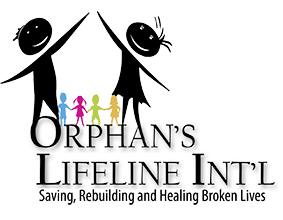Patience - A Precious Legacy
Patience is her name. Patience is, by definition, the ability to accept or tolerate delay, trouble or suffering without becoming angry or upset, and she embodies the very definition of that name as if it is her duty to live up to a title of royalty given at birth. Patience wasn’t born with any entitlement though. In fact, Patience was born into a household doomed to, instead, embody the destructive elements of a culture fraught with trouble and tragedy.
The Miracle of You
Over the last couple of months we have been talking about Miracles in our newsletter. First, we let you walk in the shoes of a young girl, born to a mother who would become a widow, and a young girl who would become a widow herself, to illustrate the destructive and perpetual cycle that creates orphans in the first place. Within that, it is easy to see why someone in that situation would deem the love you show them as the manifestation of a miracle. Because it is.
Miraculous Outcomes
They were orphans. Either by definition or for the simple fact that they have no mother or earthly father. They were alone. Some on the streets. Others in homes where there was no one to care for them. They were starving and sick. Some were babies left in dumpsters. Some were toddlers left alone to fend for themselves. Some were teenagers, wandering the streets, begging, stealing, afraid and without hope.
Miraculous
It has been said that before we judge someone, we should walk a mile in their shoes. To really understand who they are and how they came to be where they are in life.
Growing Up With Irene
Jinja, Uganda is not an easy place to live. There are many places around the world where there are cities with slums. Jinja, however, is a slum with slums. So much so that Gladys, our Africa Child Care Coordinator, told us it was a “very difficult place to be.” She called it “heartbreaking”. And Gladys is certainly no stranger to poverty, considering her work in Kenya serving orphan children in the slums there.
Arrows in the Quiver
The hunter pulled up to the Forest Service gate and put his truck in park. It was still dark, but a soft glow to the East told him dawn was coming soon. He poured himself a cup of coffee from a thermos and took a sip as he made a mental inventory of what he was going to need for the day.
A Good Chapter
Whenever someone you care about becomes ill, it truly gets you thinking about a lot of different things. The other day, someone I have known since I was a teenager passed away. He was on vacation and suffered a stroke and simply never woke up.
A New Horizon
For some, life is a journey that is uphill both ways. And sometimes, many times, it has very little to do with their own choices, but rather a matter of dealing with the hand they were dealt.
Weary or Wise
He looked in the mirror and wiped the sleep from his eyes. The man staring back at him looked much older on this morning than perhaps any other before. Tired. Frail. The face in the mirror was thin. The cheeks hollow and sunken. Not even close to what he had looked like just a month ago.
Because We Are Able PT II
Advik sits crossed-legged, alone in the dark in the corner of his bedroom. He can hear his grandmother snoring softly on the other side of the blanket that divides his small space from hers.
Because We Are Able PT I
Prisha is dreaming. It’s a pleasant dream; founded in truth, but old truth. A truth from times long past. From the days when smiles and laughter were commonplace for Prisha. When she was young and in love and the future had held the naïve hope that blind love often brings. When her husband was still her husband. When her husband was still alive.
Ignorance Is Bliss
Most of us have probably heard this saying at some point in our lives. The words were penned by Thomas Gray, a 17th Century poet when he wrote ‘Ode on a Distant Prospect of Eaton College.

